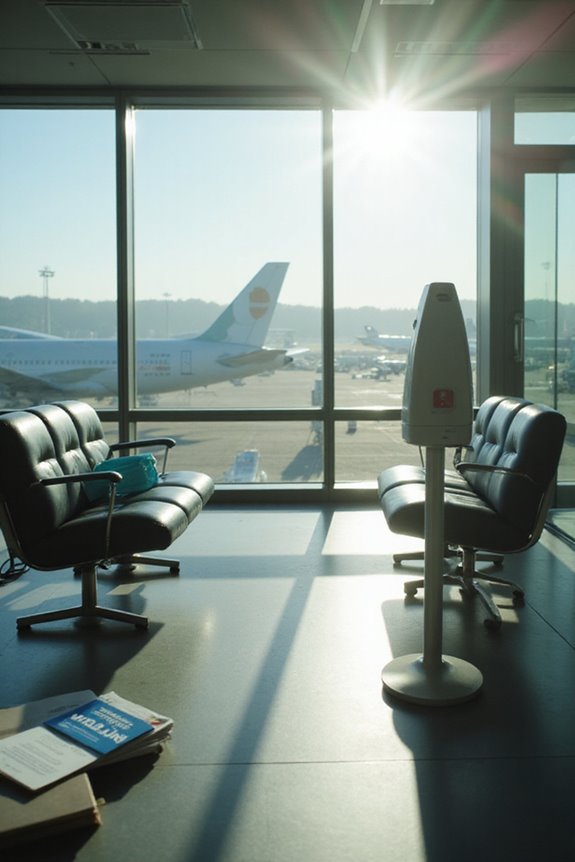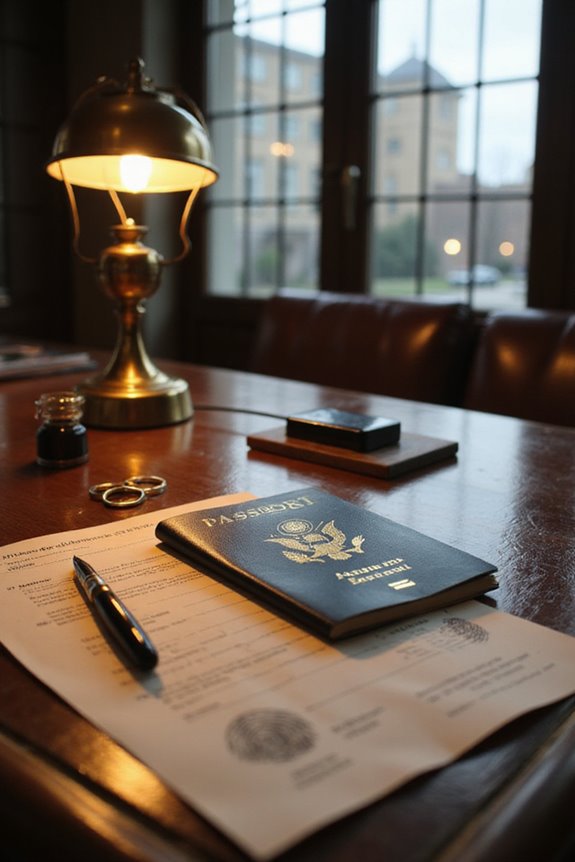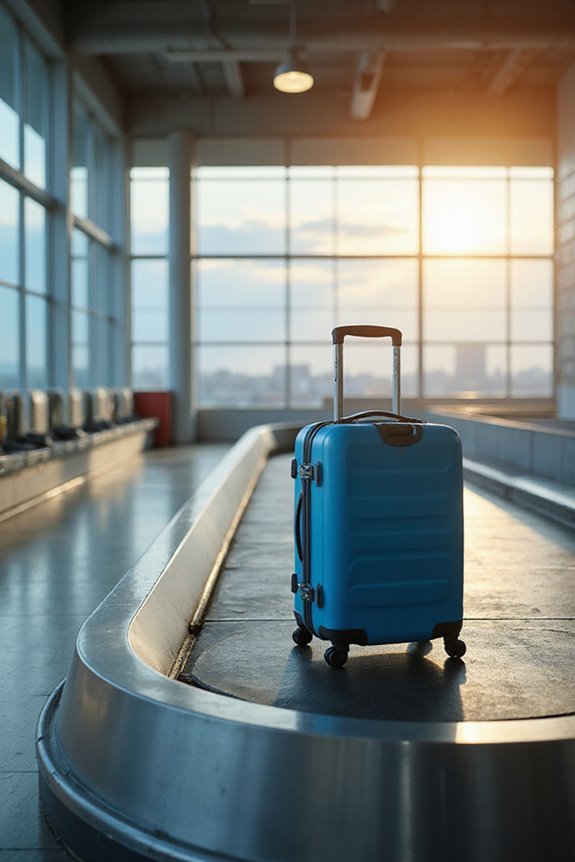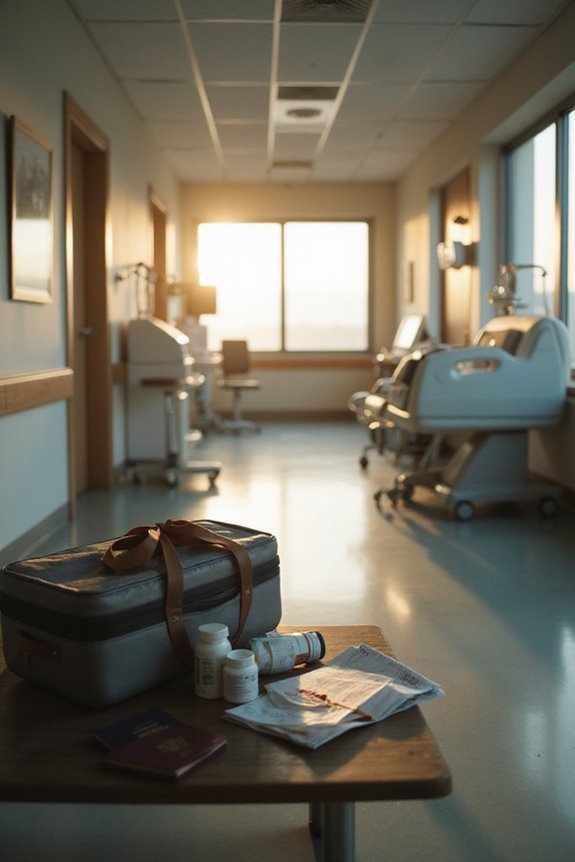So, does travel insurance cover COVID-19 related issues? Absolutely! It can help with medical expenses if you get sick, cover trip cancellations if you test positive before traveling, and even reimburse you for unexpected quarantine costs. Just make sure to check the fine print, as some policies might have exclusions. I once had a friend who had to extend their trip due to a positive test, and insurance saved them a ton. Stick around, and I’ll share more tips!
Key Takeaways
- Travel medical insurance often covers COVID-19 testing and treatment as part of emergency medical benefits.
- Trip cancellation coverage can reimburse non-refundable costs if a positive COVID-19 test occurs before travel.
- Policies may cover unexpected expenses for quarantine, including hotel stays and meals if mandated by authorities.
- Some travel insurance plans may exclude pandemic-related issues, so it’s crucial to read terms carefully.
- Consider comprehensive coverage that explicitly includes COVID-19 to protect against unforeseen circumstances.
Coverage for COVID-19 Related Medical Expenses
Have you ever wondered what would happen if you got sick while traveling during a pandemic? I mean, it’s a real concern, right? Thankfully, if you have travel medical insurance, coverage for COVID-19 testing and treatment can be a lifesaver. Most plans cover COVID-19 testing if it’s medically necessary, which is a relief when you’re feeling under the weather in a foreign land. Plus, COVID-19 treatment usually falls under emergency medical benefits, covering everything from hospital stays to prescribed meds. Just remember, it’s wise to opt for a plan with at least $50,000 coverage, and even more if you’re heading to remote locations. This way, you can focus on getting better without stressing over the costs!
Trip Cancellation and Interruption Due to COVID-19 Illness
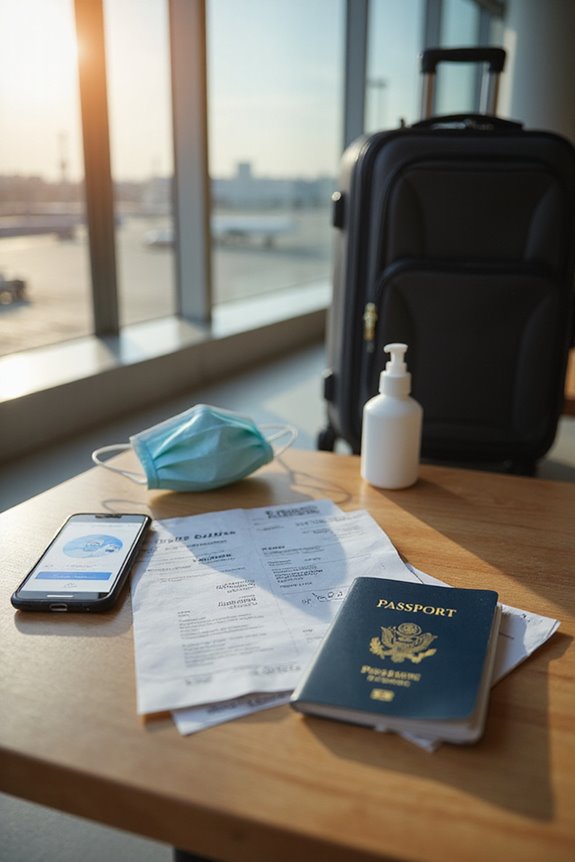
Getting sick while traveling can really throw a wrench in your plans, especially during a pandemic. If I catch COVID-19 or a close family member does before my trip, I can often claim trip cancellation coverage, which can reimburse up to 100% of my non-refundable costs. That’s a relief! However, if I’m just worried about the virus or a government order, I’m usually out of luck. On the other hand, if I’m already on my trip and test positive, trip interruption coverage kicks in, helping with unexpected expenses like changed flights or extra hotel stays. Just remember, I’ll need proof of my illness, like a positive test, to make a claim. It’s a bit of a hassle, but worth it!
Extended Coverage for Quarantine and Delays
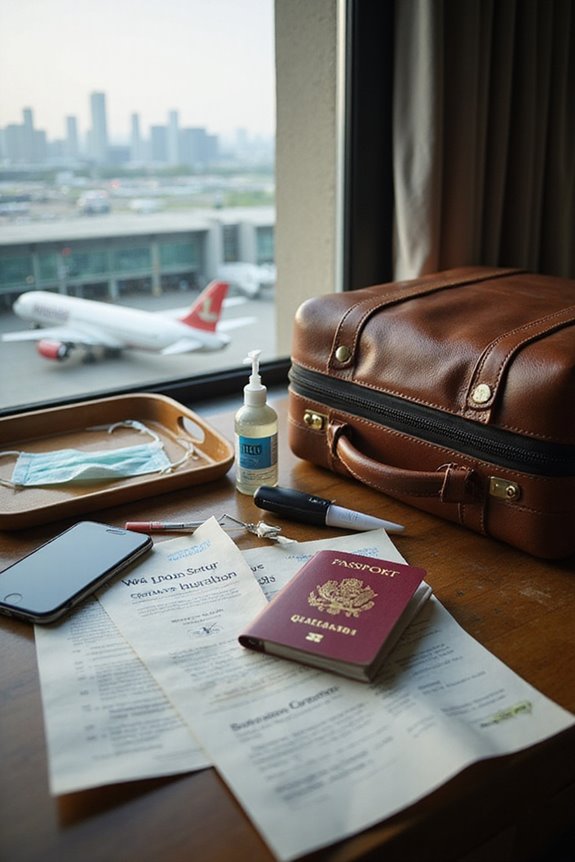
When you’re traveling during a pandemic, the last thing you want is to be hit with unexpected quarantine delays. I remember my friend getting stuck in a hotel for days because he tested positive. Luckily, his travel insurance covered quarantine reimbursement, which saved him from a financial disaster. Many policies, like IMG’s iTravelInsured, reimburse for extra hotel stays and meals if you’re quarantined under government orders. But don’t forget, you’ll need proof of those pesky positive test results! Plus, travel delay benefits can kick in for additional expenses due to extended stays. Just imagine the extra snacks and Netflix you could indulge in while waiting it out! So, check your coverage—you don’t want to be stranded without support!
Exclusions Specific to COVID-19 in Travel Insurance Policies
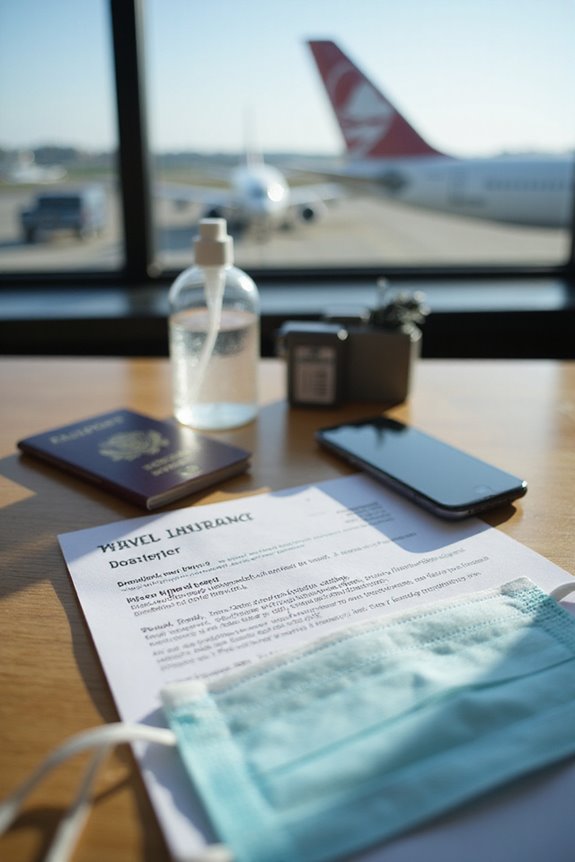
Steering through the world of travel insurance can feel like a maze, especially with all the COVID-19 exclusions lurking around every corner. I’ve learned the hard way that exclusion criteria can be a real kicker. For instance, cancellations driven purely by fear of the virus usually aren’t covered, which is a bummer if you’re just anxious about traveling. Plus, many policies treat COVID-19 as a “foreseeable” event, meaning if you bought your policy after it was declared a pandemic, don’t expect any claims to be honored. And if you’ve had symptoms before your trip or were exposed, that’s often considered a pre-existing condition. Trust me, understanding these pandemic definitions can save you a headache later!
Optional or Additional COVID-19 Coverage Features
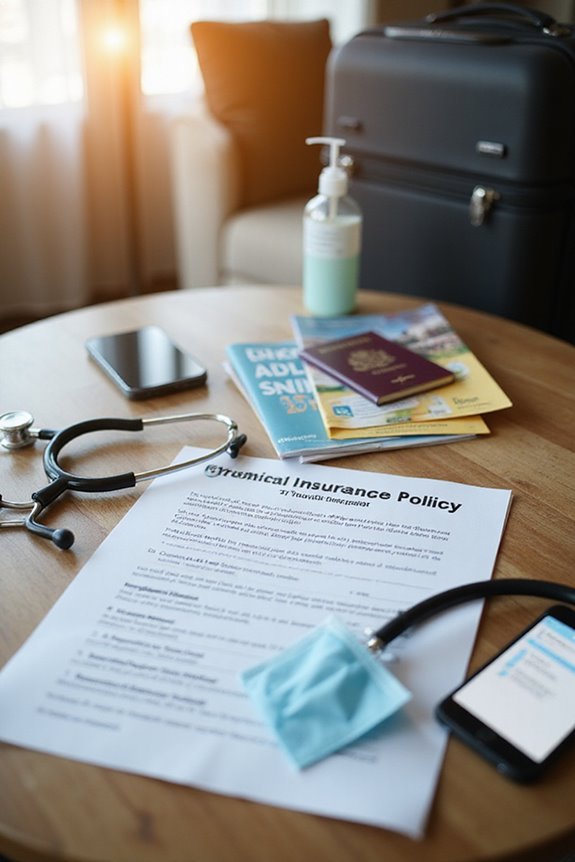
Exploring optional COVID-19 coverage features can feel like discovering hidden treasures in a travel insurance policy. With customizable coverage options, I can tailor my plan to fit pandemic preparedness perfectly. For instance, trip cancellation benefits can reimburse me for up to 100% of my prepaid costs if I cancel due to COVID-related issues. Plus, I love that many plans offer a “cancel for any reason” upgrade, giving me extra flexibility. Medical expenses are another area where I feel secure, as most policies cover COVID-19 treatments without extra fees. And let’s not forget emergency medical evacuation, which guarantees I’m safe, even in remote locations. These features make traveling during uncertain times a little less intimidating, don’t you think?
Claims and Documentation Requirements for COVID-19 Coverage
Steering through the claims process for COVID-19 coverage can feel like deciphering a complex puzzle, especially when all the documentation requirements come into play. First off, if you’re planning to file a claim, you’ll need solid claim documentation. A confirmed diagnosis from a qualified physician is a must, confirming you couldn’t travel at the time of your trip or that you were under a medically ordered quarantine. If you catch COVID-19 while traveling, you’ll want medical proof showing your illness and travel incapacity. Don’t forget to keep all those receipts and documents handy; they’re essential for verification. And remember, deadlines are key—file your claims on time to avoid missing out on those benefits you might desperately need!
Understanding Emergency Medical Benefits for COVID-19
When you’re traveling, the last thing you want is to get hit with unexpected medical expenses, especially if it’s COVID-19 that knocks you off your feet. Thankfully, most travel insurance policies offer emergency benefits that include medical coverage for COVID-19. If I contract the virus while away, I know that hospitalization, doctor fees, and even prescription drugs are covered. Plus, if I need to be evacuated because local care isn’t cutting it, that’s included too, often up to $500,000! And if I test positive and must quarantine, my accommodation and meal costs can be covered for a few days. It’s comforting to know that I’m not alone in this unpredictable travel landscape!
The Importance of Telehealth Services in Travel Insurance
There’s no denying that having access to telehealth services while traveling can be a game-changer for anyone, especially when you’re miles away from home and feeling under the weather. Imagine being stuck in a foreign city, and all you need is a quick chat with a doctor. That’s where the telehealth benefits come in! With remote consultations, I’ve been able to connect with licensed doctors instantly, easing my worries without the hassle of finding a clinic. Plus, it saves me money by avoiding unnecessary visits to emergency rooms. Managing health issues while traveling can be stressful, but telehealth makes it so much easier. It’s like having a personal doctor in my pocket, ready to help whenever I need it!
Evaluating “Cancel for Any Reason” Options
Have you ever found yourself second-guessing a trip because of unexpected changes in the world? I know I have! That’s where “Cancel for Any Reason” (CFAR) options come in handy. The CFAR benefits can offer peace of mind, letting you cancel for almost any reason, like fears about travel during a pandemic or sudden border closures. However, there are CFAR limitations to take into account. You generally need to purchase it soon after booking, and it only reimburses a portion of your trip costs—usually 50% to 75%. Plus, if you don’t insure the full amount of your trip or miss that narrow window, you’re out of luck. Balancing the cost against the flexibility is essential, but it sure can ease the worry!
Tips for Choosing the Right Travel Insurance Policy for COVID-19
Finding the right travel insurance policy during a pandemic can feel like steering through a maze—especially with all the twists and turns brought on by COVID-19. I remember scanning endless insurance policy comparisons, trying to decipher the fine print. First, make sure the policy covers COVID-19 as an emergency illness; I’d suggest looking for at least $50,000 in medical coverage. Also, check if it includes trip interruptions caused by positive tests or quarantine—nothing’s worse than a surprise hotel bill! Don’t forget about traveler health precautions like telehealth services. Finally, always verify the exclusions; you don’t want to be caught off guard. With the right plan, you can travel with peace of mind, even during these uncertain times.
Frequently Asked Questions
Can Travel Insurance Cover a Family Member’s COVID-19 Illness Affecting My Trip?
If a family member’s illness impacts my trip, travel insurance often covers cancellations or interruptions. I just need to make sure I’ve got the right documentation and follow the claims process promptly.
Are There Specific Insurers Known for Better COVID-19 Coverage?
When I look at insurer comparisons, I find that some offer better COVID-19 coverage. It’s essential to read policy details carefully, as benefits can vary notably between providers, ensuring I choose the best option for my needs.
How Does the COVID-19 Coverage Differ by Destination?
When I explore travel insurance, I notice how destination policies can really shape coverage limits. It’s fascinating how some places offer more robust options while others might leave you feeling a bit exposed.
Can I Purchase COVID-19 Travel Insurance After Booking My Trip?
I can purchase COVID-19 travel insurance after booking, but it’s essential to check the COVID 19 policy updates. Last minute coverage might have limitations, so I always confirm details with my insurance provider first.
What Happens if My Insurance Claim for COVID-19 Is Denied?
If my claim’s denied, I’ll review denial reasons, gather necessary documentation, and file a claim appeal. I won’t let a setback stop me; I’ll explore options and seek support to recover my losses.

